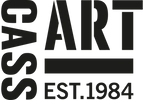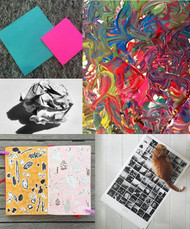The Art Student's Survival Guide to: Interviews
Posted by Cass Art Student Ambassador on 7th Sep 2018
Megan Archibald studies Painting at Gray's School of Art. Not just an artist, but a keen writer too - she has offered to share her first year of university with us. She'll be taking us through some of the key elements of studying at art school in the modern day - from applications through to end of year assessments - and will be offering her advice to budding art students. Take a look at Issue #2...
You’ve done it - you've survived the personal statement, bribed and coaxed your way to brilliant references and sent your UCAS forms off. The worst part of your university application is over, and then- drumroll please... you’re invited to an interview! Here are some pointers to help you get through them.
First things first:
When you get your interview date and time, make sure you thoroughly read the guidelines; no, seriously, Thoroughly read the guidelines.
The guidelines will tell you if you have any paperwork to complete and submit with your portfolio. If you’re dropping your portfolio off for assessment it will tell you where and when to drop it off and pick it up, and even how to package and label it. Some of the stricter art schools will not even look at your portfolio if it's obvious you haven’t read the guidelines properly. Don’t be that person.
How should I present my portfolio?
Guidelines will vary between universities and courses, and it isn’t uncommon for two colleges to have completely different ideas of how they want your portfolio to look at interview (frustrating, I know!) However, some general guidelines are:
- Include high quality photographic prints of 3D work, pieces that are too big to transport, or work that is currently in progress.
- There likely will not be time to go through all of your fantastic sketchbooks, so highlight key pages, or sections you are particularly proud of, using bookmarks or stickers.
- Don’t cut up any development sheets, as the interviewer will want to see an accurate representation of how you work through your creative process.
- You may be requested to mount final pieces, drawings and paintings where applicable.
- Include pieces you feel are mistakes, as often the interviewer will be most interested in how you solve problems, not just that you did solve the problem.
There are generally two types of interview for art school - portfolio drops, and old fashioned face-to-face interviews.
How does a portfolio drop work?
The university will email you a date and time to go to the establishment and drop off your portfolio of work (investing in a good quality portfolio case is a good idea if you have this type of interview, as it will keep your work protected, even when it's out of your sight). You may be requested to submit some written answers alongside your portfolio - if this is the case, the questions or forms they want you to respond to will be sent to you with your interview date. You may be offered a tour of the campus, or to attend a talk while your portfolio is assessed, or you may simply just be told to come back and collect it at a certain time. Simple, right?
How do I deal with a face-to-face interview?
We all know the format of a traditional interview, but this doesn't make it any less nerve-racking. Confidence is key here, and confidence comes from practice and knowledge. I know talking to people can be stressful, but remember nobody is an expert on your work except for you! Practice was so important for me, and I soon found myself talking about my work to anyone who would listen - friends, family, pets – and I’d really recommend giving that a try. Remember that the people interviewing you were once stood in your shoes, and are most likely artists themselves, which is something you should be able to bond over immediately!
Arrive early, and allow plenty of time to get lost at least once. Consider how heavy and bulky your portfolio is, as there may be a considerable walk across campus to your interview room. It is an interview, but it’s an art school interview, so be yourself, just a well-presented version of yourself.
And remember to eat something before you go! My mother’s advice is to eat a bar of chocolate before an interview, and I must say it does help.
What questions am I likely to be asked?
You can never fully predict what you'll be asked when you go along to an interview, but there are a number of common themes that tutors seem to hit upon. I've spoken to a few fellow art students, and gathered together a list of questions that many of us encountered at our art school interviews:
- Who is your favourite contemporary artist/designer and why?
- What was the last exhibition you attended? Did you like it? Why/Why not?
- What do you see yourself doing after art school?
- What’s your favourite medium to work in, and what draws you to it?
I was also asked a few more general questions about visual culture, like what my favourite films were, or what the last advertising campaign I’d seen and really liked was. (Lord of the Rings, and The United Colours of Benetton, I know you were just itching to know.)
But finally...
The best piece of advice to keep in mind of any interview is relax! Use it as an opportunity to show off a little- talk about what inspires you, and tell them about your work. I mean, there’s worse things than talking about yourself for half an hour, right?
Best of luck!



